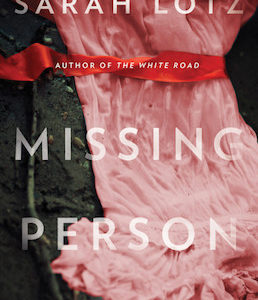As Sun Microsystems CEO Scott McNealy famously said 20 years ago, “You have zero privacy anyway. Get over it.” But we can’t get over it, can we? Not with weekly news stories about massive security breaches involving personal information, Russian election hacking, NSA domestic surveillance, and Dark Web marketplaces that sell your identity along with illegal goods and services from heroin to hit men.
By now, cybercrime has touched most of us in one way or another. You have probably received at least one of those letters stating that your personal information may have been compromised and recommending that you consider checking your credit reports. When I’m not writing thrillers, part of my job involves helping companies respond to security breaches and write those notification letters.
I’m a privacy attorney, which makes me a paranoia professional. So what does a privacy attorney do? I advise companies on what they can and can’t do with your personal information. I help my clients improve their privacy and cybersecurity, and respond quickly to security breaches. My day job gives me a look behind the curtain of how personal information is commoditized in the information economy, and how it’s targeted by cybercriminals. It can be a scary world, and it provides me with an endless supply of plotlines for my high-tech thrillers.
But technology also brings cybercriminals, hackers and scammers from all over the world into our homes and our inboxes.Our smart phones and computers bring people closer together, and that is often a good thing. But technology also brings cybercriminals, hackers and scammers from all over the world into our homes and our inboxes. In my thrillers, I often play upon the peculiarly modern fear that you’re being constantly observed.
My Chris Bruen series features a former Department of Justice cybercrimes prosecutor who goes into private practice to help businesses defend against cybercriminals. When Bruen is introduced in The Adversary, the scene is drawn from an encounter I had with a former colleague. We had just given a presentation on cybersecurity, and I asked him where he was headed next. He informed me that he was flying to Amsterdam to knock on the door of a hacker who had stolen a client’s intellectual property to persuade him to return the property under threat of prosecution. Of course, unlike real life, in my version of the story someone dies.
My latest book, Black Nowhere, is inspired by the true story of the rise and fall of Silk Road, the Dark Web marketplace for illegal drugs, and the law enforcement investigation that brought it down. In my legal practice, I frequently encounter the Dark Web because when hackers steal a company’s personal information or trade secrets, they are often offered up for sale on the Dark Web. The more I learned about the lawless world of the Dark Web, the more fascinated I became.
The protagonist in Black Nowhere is FBI Special Agent Lisa Tanchik, who is particularly adept at navigating the Dark Web. She has developed an array of online personas that she uses to keep tabs on the Dark Web underworld to further her investigations. One of those identities proves particularly useful in drawing her close to Nate Fallon, a brilliant Stanford graduate student who has founded a Dark Web drug marketplace known as Kyte.
Special Agent Tanchik has experienced some obstacles to her advancement in the FBI because she is more of a technology geek than a gun-toting field agent. With the investigation of Kyte, she finally finds the opportunity to show what she can do. In my research, I was told by one former FBI source that, while the FBI seeks to become more tech-savvy to combat cybercrime, the agency does sometimes struggle to accommodate next-gen agents like Tanchik who don’t fit the traditional, square-jawed mold.
Kyte, of course, is modeled on Silk Road, and Nate Fallon bears more than a passing resemblance to Ross Ulbricht, Silk Road’s founder. In my work as a privacy attorney, I often advise technology startups, and I was struck by how closely Silk Road followed the trajectory of so many successful Silicon Valley companies. In Black Nowhere, Nate Fallon likes to think that he is not so different from Jobs, Zuckerberg, and the other titans of the tech industry that he admires.
Like so many of the biggest Silicon Valley IPO companies, Kyte was started in a student dorm, developed a seamless, user-friendly online platform, and quickly connected with a large user base. But Kyte is different from those tech success stories in one critical respect: it’s a criminal enterprise. Instead of being profiled in The Wall Street Journal, Nate Fallon finds himself in the crosshairs of the FBI, an alphabet soup of other law enforcement agencies, and a Mexican drug cartel.
In my Lisa Tanchik series, I wanted to profile a new sort of crime fighter who is equipped to combat cybercrime in all its nefarious manifestations. This new breed of outlaw, like Nate Fallon, is often able to use technology to commit criminal acts at a scale that would put traditional “brick and mortar” felons to shame. In the next book in the series, Dark Tomorrow, Lisa is pulled into an investigation that blurs the lines between a cybercrime and an act of cyberwarfare.
I’m still figuring out where Special Agent Tanchik will go next, but if I’ve learned anything from my privacy law practice, it is that cybercrime is constantly mutating into new and scary forms. That’s what keeps cyber investigators like Tanchik, and privacy attorneys like me, so busy.

















